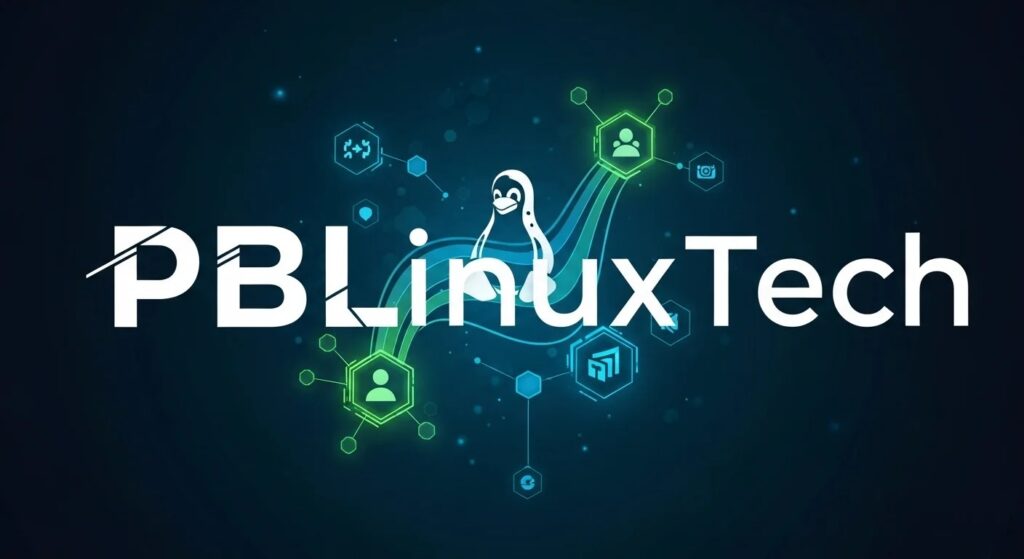Introduction
Technology is evolving at an unprecedented speed, and keeping track of the latest breakthroughs is essential for professionals, businesses, and enthusiasts alike. Platforms like trends pblinuxtech have become valuable sources for exploring how open-source software, Linux technologies, and innovative IT solutions are shaping the future. From AI integration to cybersecurity frameworks, these trends reveal what the digital landscape might look like in the next few years. If you want to stay ahead in this competitive era, understanding these movements is key.
The Open-Source Movement: More Than Just Free Software
Open-source software has transitioned from being an alternative to proprietary solutions into the backbone of modern IT infrastructure. Trends pblinuxtech showcases how open-source is no longer just a cost-saving choice but a driver of innovation.
Why Open-Source Matters
- Flexibility: Modify tools to meet unique needs.
- Transparency: Access to source code ensures better trust.
- Community Power: Developers worldwide constantly improve solutions.
- Scalability: Perfect for startups and enterprises alike.
Businesses relying on Linux servers benefit from unmatched stability and security. Whether running cloud platforms or enterprise networks, Linux remains the backbone of countless industries.
Cloud-Native Development: Building for the Future
A major trend discussed in trends pblinuxtech is the shift toward cloud-native development. Unlike traditional applications, cloud-native apps are designed to run in distributed cloud environments.
Key Advantages
- Scalability – Applications can handle traffic spikes easily.
- Speed – Deployment cycles are faster with tools like Kubernetes and Docker.
- Cost-Efficiency – Pay only for the resources you use.
By combining cloud-native approaches with Linux, companies can build powerful ecosystems capable of adapting to modern demands.
AI-Powered Automation on Linux
Artificial intelligence is no longer futuristic—it’s part of everyday life. From chatbots to predictive analytics, trends pblinuxtech highlights the growing adoption of AI-powered automation on Linux systems.
- Machine Learning Frameworks: TensorFlow and PyTorch run seamlessly on Linux.
- Automation in Business: AI can manage workflows, customer service, and even cybersecurity.
- Smarter Analytics: Businesses can predict customer behavior and optimize strategies.
This fusion of AI and open-source tools provides both flexibility and efficiency, making it easier for companies to adopt automation at scale.
Cybersecurity and Open-Source Security Tools
In a world where cyber threats grow daily, trends pblinuxtech emphasizes the importance of protecting digital assets. Linux-based open-source security tools are now widely used to safeguard businesses and individuals.
Notable Tools
- Snort – A leading intrusion detection system.
- ClamAV – An antivirus engine for scanning malicious files.
- iptables – Powerful firewall management for Linux systems.
Combined with zero-trust security models and AI-driven threat detection, these tools provide a strong foundation for modern cybersecurity strategies.
The Power of Edge Computing
As IoT devices, self-driving cars, and smart factories become mainstream, edge computing has emerged as a game-changing trend. Instead of sending data back to centralized servers, processing happens closer to the data source.
Benefits of Edge Computing
- Real-Time Responses – Crucial for autonomous vehicles and healthcare devices.
- Reduced Latency – Faster decision-making at the device level.
- Lower Bandwidth Use – Efficient handling of massive data streams.
By combining edge computing with Linux-powered infrastructure, businesses can unlock high-speed, secure, and efficient data processing.
Blockchain Beyond Cryptocurrency
Blockchain is often associated with Bitcoin, but trends pblinuxtech points out that its applications extend far beyond finance.
Real-World Applications
- Supply Chain Tracking – Transparency in logistics.
- Digital Identity – Safer ways to verify personal information.
- Smart Contracts – Automating agreements without intermediaries.
Open-source blockchain projects, when deployed on Linux servers, are enabling industries to operate with greater trust and efficiency.
Remote Work: Technology for the Modern Workforce
With remote work now a permanent part of global business culture, Linux-based platforms are playing a significant role.
Essential Tools
- VPN Solutions – Secure access to company systems.
- Open-Source Collaboration Apps – Tools like Jitsi and Nextcloud offer alternatives to proprietary platforms.
- Virtualization – Enables remote teams to replicate workplace environments.
By aligning with trends pblinuxtech, organizations can adopt flexible and secure tools to support their distributed teams.
Conclusion
The world of technology is constantly shifting, and platforms like trends pblinuxtech provide a clear view of where things are headed. From cloud-native development and Linux servers to edge computing and AI-powered automation, these trends show how open-source innovation is reshaping industries. Businesses that embrace these advancements not only future-proof their operations but also gain a competitive edge in the digital era.

